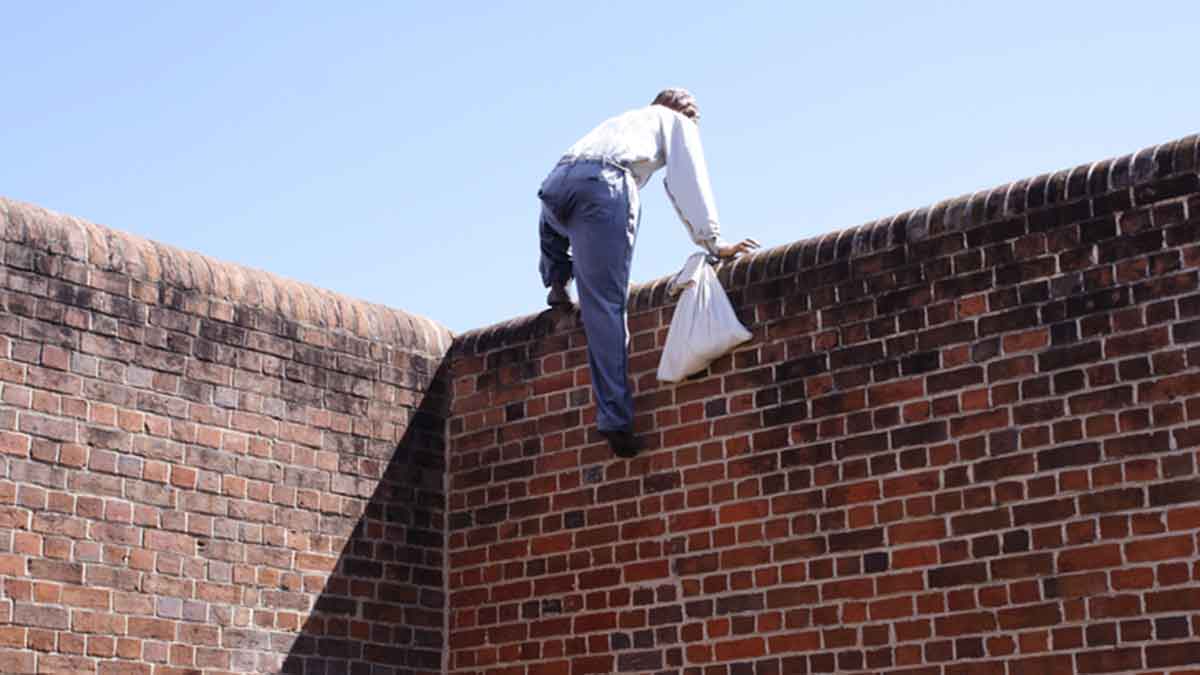Lock us up! ASX investors likely winners from Victoria lockdown

Picture: Getty.
Supermarket shelves are bare again, sly Bumble dates are relegated back to the park, and last night houses were lit up around the city as friends and family shared a “last supper” — COVID-19 has fully breached Melbourne’s gates.
Counterintuitively, Victoria’s latest move against the pandemic is likely to continue the stock market’s upwards run.
As of midnight on Wednesday the Victorian government moved metropolitan Melbourne and the Mitchell Shire back to stage 3 restrictions for six weeks, following outbreaks in the northern suburbs.
The latest numbers, for the 24-hours leading up to Wednesday confirm 134 new cases of COVID-19, with 11 linked to known outbreaks and 123 under investigation. Victoria had 860 active cases, of which 41 are in hospitals and seven in intensive care.
As business in the city suffers — City of Melbourne lord Mayor Sally Capp says 15 per cent of CBD businesses are estimated to close forever from the second lockdown — governments and the Reserve Bank continue to offer economic support, partly in the form of propping up asset prices with cheap money.
“That’s why we may see relatively safe companies, which are not as impacted by a weak economy, eventually trade far higher than their February levels,” Milford Asset Management portfolio manager Willian Curtayne says.
“Not all is doom and gloom for the share market. If there is one lesson this year it is that the share market is not the economy.
“Given the lack of alternative investments, and the widespread view that central banks will step in with further support if markets fall too much, we believe the downside for the ASX is somewhat limited.
“We may see a further pullback over the coming days and weeks, but do not anticipate a major setback unless another unforeseen domestic or global development occurs. Central banks failing to deliver further support if required would be a very negative development, but this looks unlikely in the near term.”
In an uncertain world that is flush with liquidity, and offers poor returns on cash and bonds, experienced and amateur investors are getting into shares as they seek a return on investments from the only place currently providing any.
‘Material setback’
Victoria’s reversion will be a “material setback” to the broader economy, given the state makes up almost a quarter of the country’s output.
Nationals MP Matt Canavan and Treasurer Josh Frydenberg yesterday flagged extensions of the JobKeeper wage subsidy and bringing forward already legislated tax cuts.
The RBA kept the cash rate at the historic low of 0.25 per cent this week, saying conditions have “stabilised recently” and the resulting downturn “has been less severe than earlier expected”. But deputy governor Guy Debelle said last week higher benchmark interest rates were unlikely to occur until late 2022 or early 2023.
“This is a major economic setback, not only for Victoria but also for Australia, and confidence is unlikely to bounce back as quickly after this lockdown as it did in May. This means lower consumer spending, less business investment and more job losses,” Curtayne said.
“The Morrison government will be called upon for more support, and it will almost certainly deliver some. But the longer this continues and the more the federal government spends, the harder the decisions become. There is no V-shaped recovery.”
Curtayne says confidence will bounce back more slowly this time. Investor confidence swung between extremes during the early months of the nationwide COVID-19 restrictions from hopelessness to extreme optimism as the economy began to reopen.
“Now, people better understand the reality of the situation, which is that the virus is not going away for at least the next year and maybe longer. The world is not ending, but nor is it likely going back to normal anytime soon,” he said.
UNLOCK INSIGHTS
Discover the untold stories of emerging ASX stocks.
Daily news and expert analysis, it's free to subscribe.
By proceeding, you confirm you understand that we handle personal information in accordance with our Privacy Policy.








